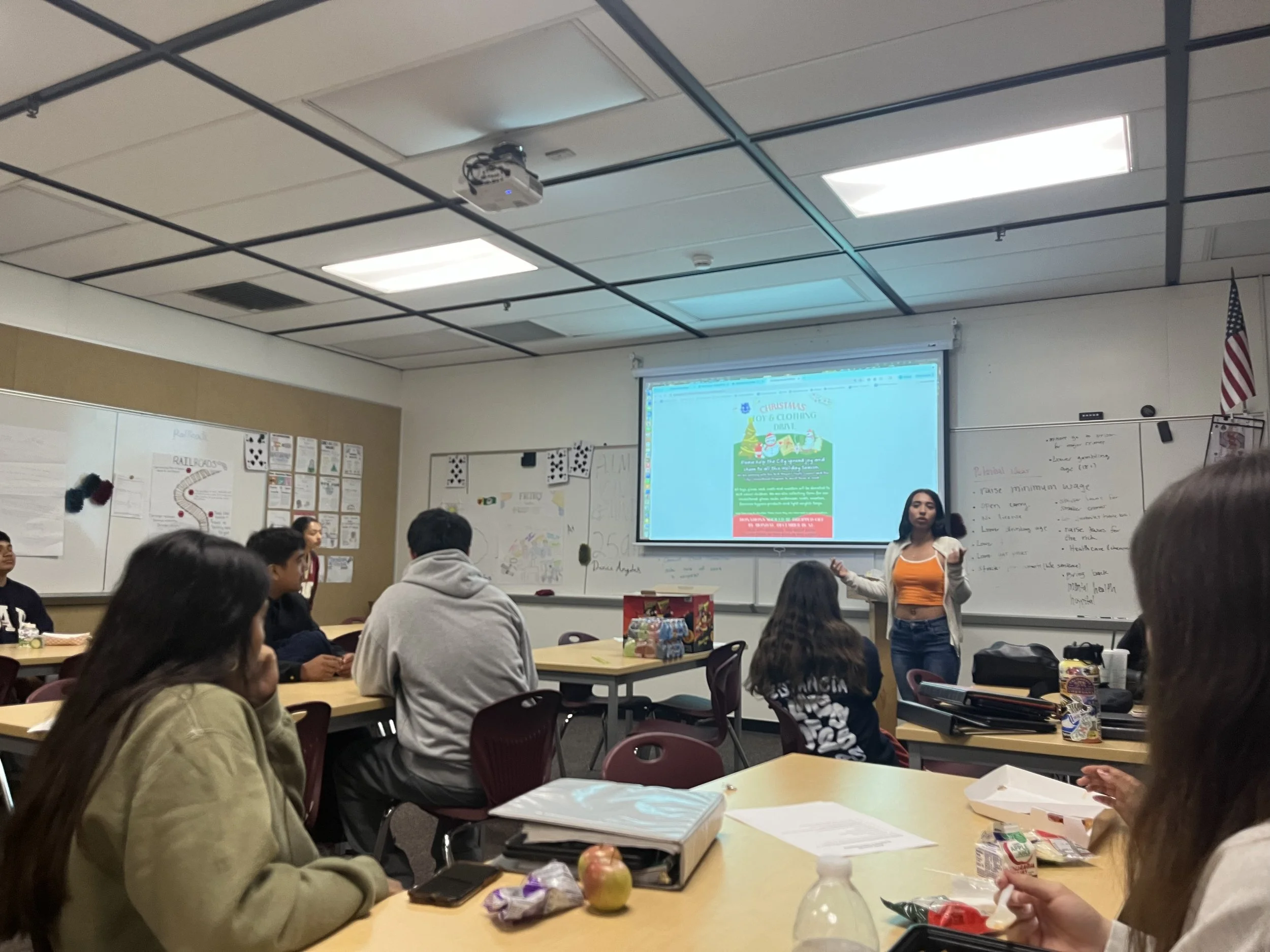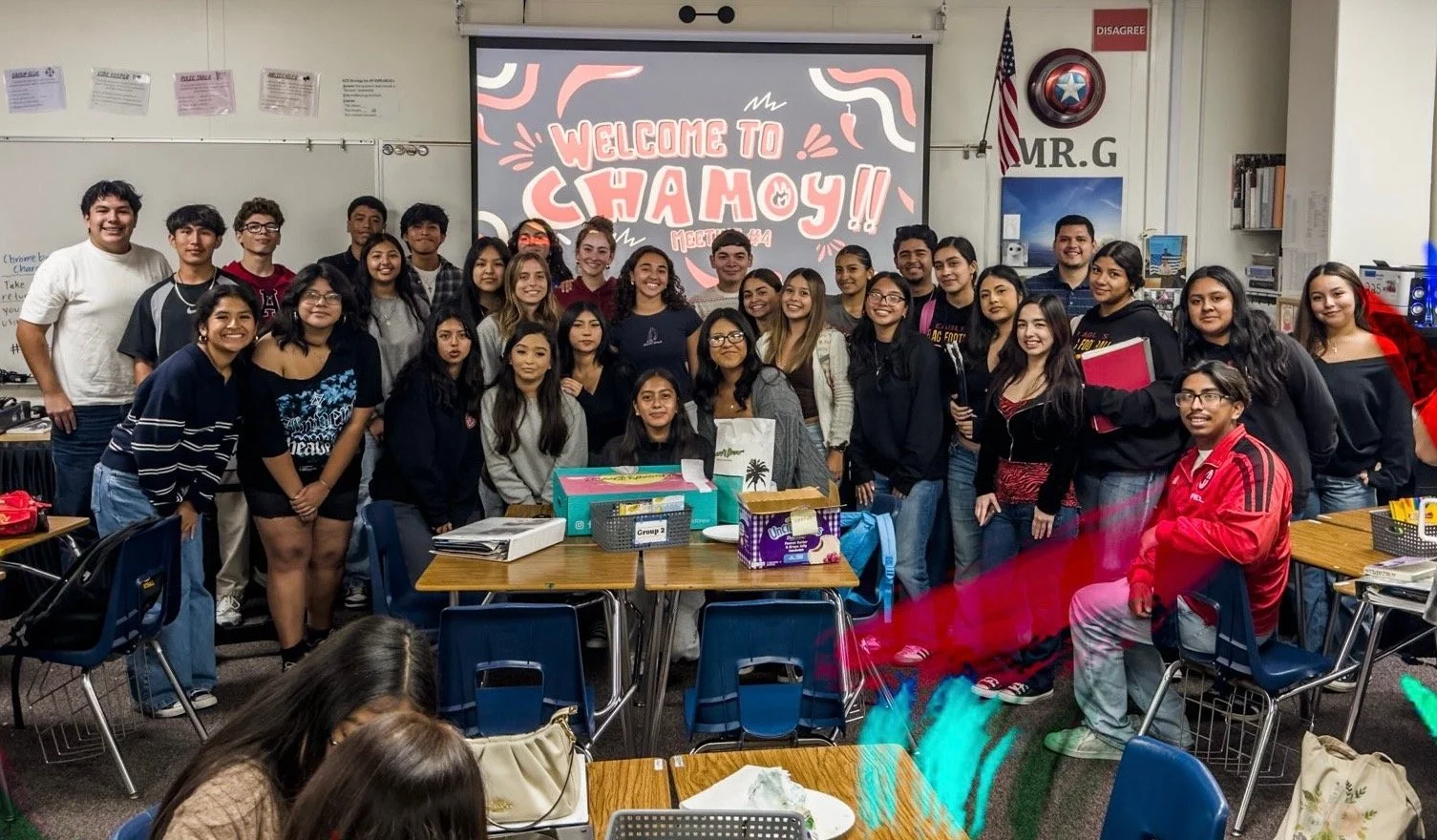Chamoy and AIM
Two campus political clubs, Changing Hearts And Minds of Youth (CHAMOY) and Action In Motion (AIM), have recently sparked meaningful discussions about why two clubs are addressing similar topics. While their focuses may differ, both share a goal of understanding the challenges within America’s multicultural identity.
CHAMOY is a student organization that discusses Latino culture and raises awareness about the diversity that defines American society, while AIM takes a broader political approach.
Although their missions are distinct, both clubs are committed to promoting awareness and understanding of complex social issues.
This month, both clubs held meetings centered on the theme of diversity and its connection to human rights issues. CHAMOY focused on cultural and social contributions, while AIM examined humanitarian struggles. Each discussion explored how diversity and immigration shape modern America.
CHAMOY’s meetings emphasize celebrating Latino identity and encouraging dialogue about how cultural pride can strengthen community ties.
Members discussed how immigrant families contribute to American society while facing challenges related to discrimination and representation. The club’s goal is to create a sense of unity through shared cultural experiences and mutual respect.
AIM’s meeting took a policy-based direction, focusing on current issues at the southern border, including the human impact of migration, human trafficking, and drug exploitation.
“I didn’t want to just focus on one issue, I wanted to focus on several different issues,” said AIM founder Devoni Bustos.
“CHAMOY is doing great things but I feel like they’re more focused on immigration rights… I just thought it was important to bring up other issues that not many people are talking about.”
While CHAMOY celebrates cultural diversity and AIM explores a wide range of topics, both clubs share a message of awareness and empathy.
“I want it to be open to anyone. Anyone can come in. Everyone’s voice matters,” said Jackie Gomez, president of CHAMOY.
Despite addressing different aspects of the same issue, both groups demonstrate how political dialogue can cross boundaries and bring students together through shared values of respect, knowledge, and compassion.
“It’d be a great opportunity (the club) to show kids where to go when something’s wrong, where to talk to people, where to talk to the higher ups,” Gomez said.
Both clubs may approach their discussions from different angles, but their messages align: diversity and human rights are central to understanding today’s America.
“It’s a diverse club of different issues that you can bring in and discuss how you want to help make a difference,” said Bustos.
Through open conversation and awareness, both CHAMOY and AIM encourage students to think critically about justice and the shared responsibility of creating a more informed and inclusive society.


